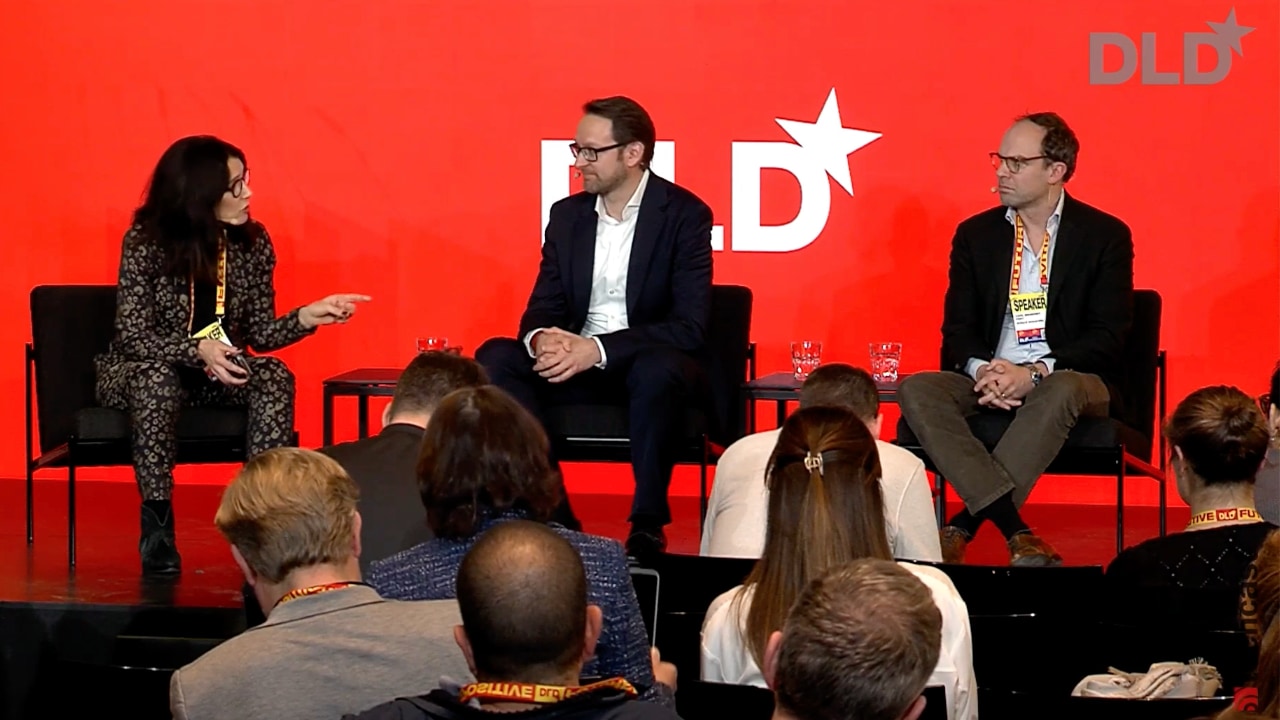How is artificial intelligence changing work and the role of corporate management? In this DLD25 session, moderated by Lisa Witter (Apolitical Foundation), future of work expert Carl Benedikt Frey (University of Oxford) and SAP Executive Board member Thomas Saueressig share insights.
Thomas Saueressig presents the striking figure of $4.1 trillion potential economic value from AI, a Morgan Stanley estimate.
He contrasts this enormous opportunity with Europe’s economic stagnation, particularly in Germany, urging faster adoption beyond pilots and proofs of concept. “Even if it’s not perfect yet, even if there’s a risk, even if we heard about hallucinations”, he says, “we should not make the mistake to wait until the perfect moment because then, quite frankly, the rest of the world will be far ahead.”
Saueressig emphasizes that an innovation culture is critical for AI adoption, noting that SAP has already integrated AI across its operations – from development to marketing – and that the conversation needs to shift “from job security to skill security.”
Carl Benedikt Frey provides historical context, noting that even as AI surpasses humans in specific domains like the game of Go, today’s AI systems tend to struggle with tasks they have not been trained on.
“Even in cases where you see AI surpassing human performance you can’t be sure if it works”, Frey warns, “or to what degree it works when novel circumstances emerge”, Frey warns. Large Language Models typically “perform no better than chance on new types of questions”, he adds.
Organizations that want to maximize the benefits of AI adoption should reward trial and error, rather than optimize performance in narrowly defined tasks, Frey suggests.
“When you’re in a period of technological turbulence, you need to give people the decision-making autonomy to actually experiment with the technology to reap the benefits from it.”
Watch the video for details – and find out why leading with courage, curiosity, and an openness to change may well be the best strategy in times of AI.





